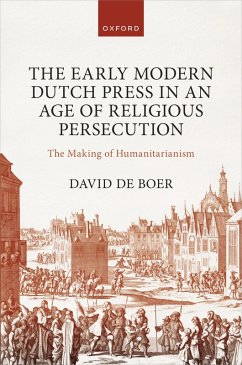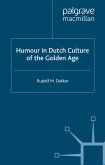This is an open access title available under the terms of a CC BY-NC-ND 4.0 International licence. It is free to read at Oxford Scholarship Online and offered as a free PDF download from OUP and selected open access locations. For victims of persecution around the world, attracting international media attention for their plight is often a matter of life and death. This study takes us back to the news revolution of seventeenth-century Europe, when people first discovered in the press a powerful new weapon to combat religiously inspired maltreatments, executions, and massacres. To affect and mobilize foreign audiences, confessional minorities and their advocates faced an acute dilemma, one that we still grapple with today: how to make people care about distant suffering? David de Boer argues that by answering this question, they laid the foundations of a humanitarian culture in Europe. As consuming news became an everyday practice for many Europeans, the Dutch Republic emerged as an international hub of printed protest against religious violence. De Boer traces how a diverse group of people, including Waldensians refugees, Huguenot ministers, Savoyard office holders, and many others, all sought access to the Dutch printing presses in their efforts to raise transnational solidarity for their cause. By generating public outrage, calling out rulers, and pressuring others to intervene, producers of printed opinion could have a profound impact on international relations. But crying out against persecution also meant navigating a fraught and dangerous political landscape, marked by confessional tension, volatile alliances, and incessant warfare. Opinion makers had to think carefully about the audiences they hoped to reach through pamphlets, periodicals, and newspapers. But they also had to reckon with the risk of reaching less sympathetic readers outside their target groups. By examining early modern publicity strategies, de Boer deepens our understanding of how people tried to shake off the spectre of religious violence that had haunted them for generations, and create more tolerant societies, governed by the rule of law, reason, and a sense of common humanity.
Dieser Download kann aus rechtlichen Gründen nur mit Rechnungsadresse in A, B, BG, CY, CZ, D, DK, EW, E, FIN, F, GR, HR, H, IRL, I, LT, L, LR, M, NL, PL, P, R, S, SLO, SK ausgeliefert werden.









